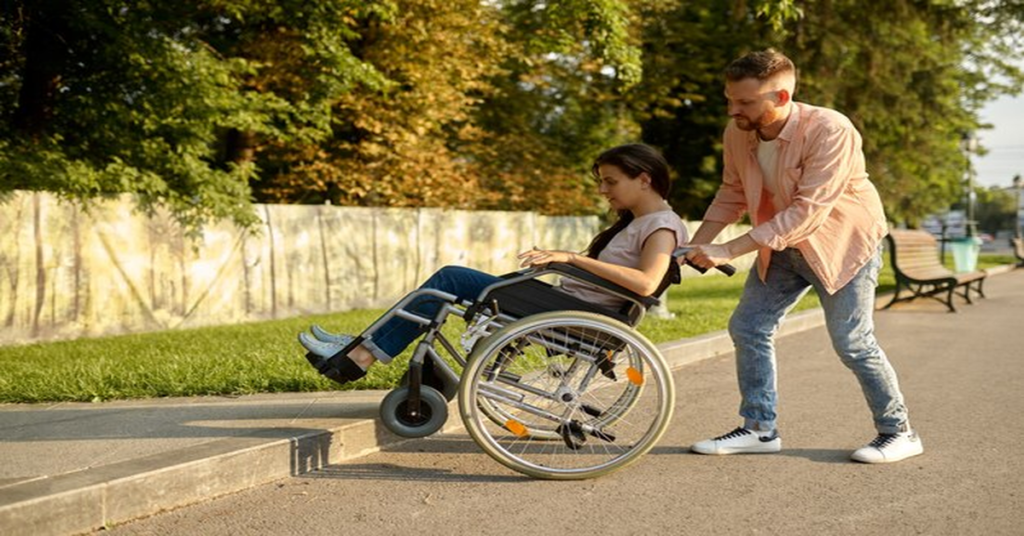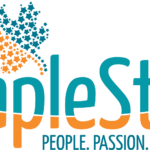Can disability be a gift to some people often perceived through the lens of limitation—a barrier to be overcome or a challenge to be navigated. But what if this common narrative is incomplete? For many people, disability isn’t just a source of struggle; it can also become a gateway to growth, self-discovery, and unique perspectives that might otherwise remain untapped. The idea of a disability being a “gift” may initially sound controversial or even insensitive, but in reality, it is a perspective embraced by individuals who have found purpose, resilience, and strength within their challenges.
This comprehensive exploration will look at how disability can transform lives, foster strengths, and help people develop unique skills that impact both themselves and society. We’ll examine real-life examples, scientific studies, and the philosophical questions surrounding this complex topic.
Defining Disability: Beyond Limitations
Disability is often defined as a physical or mental impairment that limits a person’s ability to perform certain tasks or engage in activities. The World Health Organization (WHO) describes disability as a dynamic interaction between health conditions and contextual factors like environment and societal support.
But this clinical definition doesn’t fully encompass the lived experiences of those with disabilities. To understand how a disability can sometimes be perceived as a gift, it’s essential to recognize that disability is not always about deficits—it can also be about adaptations, strengths, and new perspectives.
The Power of Perspective: Shifting the Narrative
Many individuals with disabilities, their families, and communities have shifted their perspective from viewing disability as purely negative to recognizing its potential for fostering positive change. This shift is reflected in concepts like neurodiversity, which promotes the idea that neurological differences are not deficiencies but variations that contribute to the diversity of human experience can disability be a gift to some people.
1. Enhanced Empathy and Emotional Intelligence
- Research Findings: Studies have shown that individuals who grow up with or develop disabilities often display higher levels of empathy and emotional intelligence.
- Why It Happens: Coping with challenges fosters a deeper understanding of others’ struggles and encourages emotional resilience.
Example: Temple Grandin, a well-known autistic advocate and animal behavior expert, credits her autism with helping her develop an acute understanding of how animals experience the world, leading to significant innovations in livestock handling.
2. Creativity Through Adaptation
- The Creative Advantage: People with disabilities frequently develop creative problem-solving skills as they navigate inaccessible environments or societal barriers.
- Artistic Expression: Many artists and innovators have drawn inspiration from their disabilities. For example, Beethoven composed some of his most famous symphonies while experiencing profound hearing loss.
3. Strengthening Family and Community Bonds
Disability can bring families and communities closer together as they learn to support and adapt to the needs of their loved ones. This shared experience often fosters resilience and stronger interpersonal connections.
Impact on Society: Communities that prioritize inclusivity and accessibility often benefit from increased innovation and empathy, as everyone works together to find solutions.
How Disability Fosters Personal Growth
For many individuals, living with a can disability be a gift to some people means developing strengths and coping mechanisms that contribute to personal growth. Here are some key areas where disabilities can lead to growth:
1. Building Resilience
Resilience is the ability to adapt and bounce back from adversity. People with disabilities often face challenges that require them to develop this skill to navigate life successfully.
Why It’s Important:
- Resilience enhances problem-solving abilities.
- It promotes mental toughness and emotional stability.
Case Study: Nick Vujicic, born without arms and legs, has become a motivational speaker who inspires millions worldwide with his message of perseverance, self-acceptance, and hope.
2. Developing a Unique Identity
Living with a can disability be a gift to some people often shapes one’s identity in profound ways. People may embrace their disability as an integral part of who they are, leading to greater self-awareness and authenticity.
Example: Frida Kahlo, a renowned Mexican painter, used her physical pain and disability as inspiration for her iconic artwork, which explored themes of identity, suffering, and resilience.
3. Learning Adaptability and Flexibility
Disabilities frequently require individuals to adapt to unpredictable situations, from dealing with accessibility challenges to finding alternative ways of completing tasks.
Why It Matters:
- Adaptability is a critical life skill that helps individuals navigate change and uncertainty.
- It leads to innovative approaches and creative solutions.
Scientific Perspective: Research in cognitive psychology highlights that adaptability can lead to enhanced problem-solving skills and creative thinking.
Scientific Evidence: The Strengths of Disability
Scientific studies have shed light on how can disability be a gift to some people can lead to unique cognitive and emotional strengths. Let’s take a closer look at some key findings:
1. Neurodiversity and Cognitive Strengths
- Autism Spectrum Disorder (ASD): Studies show that individuals with ASD often exhibit exceptional pattern recognition, attention to detail, and memory.
- Dyslexia: Although dyslexia is associated with challenges in reading and writing, research indicates that people with dyslexia often excel in spatial reasoning and creative problem-solving.
2. Enhanced Sensory Perception
- Individuals who are blind or visually impaired often develop heightened auditory perception and tactile sensitivity.
- Similarly, those with hearing impairments may experience improved visual acuity and spatial awareness.
Example: Helen Keller, who was both deaf and blind, became a world-renowned author, political activist, and lecturer, proving that sensory impairments do not limit one’s ability to achieve greatness.
3. Emotional and Social Intelligence
- Research Findings: Studies have found that individuals who face chronic illnesses or physical disabilities often display higher levels of empathy and emotional intelligence due to their lived experiences.
- Practical Implication: This heightened emotional awareness can lead to successful careers in fields like counseling, social work, and advocacy.
Disability as a Catalyst for Social Change
Disabilities don’t just impact individuals—they can drive systemic change and societal improvement. The advocacy efforts of individuals with disabilities have led to significant advancements in accessibility, inclusion, and legal protections.
1. Pioneering Accessibility Innovations
Many technologies and innovations that benefit society were developed to meet the needs of people with disabilities. Examples include:
- Voice recognition software
- Screen readers for the visually impaired
- Wheelchair ramps and elevators
2. Legal Protections and Human Rights Movements
- The disability rights movement has been instrumental in advocating for legal protections, such as the Americans with Disabilities Act (ADA) and the United Nations Convention on the Rights of Persons with Disabilities (CRPD).
Impact: These legal frameworks have improved access to education, employment, transportation, and public spaces for millions of people worldwide.
3. Increased Awareness and Empathy
Disability advocacy raises awareness of the challenges faced by people with disabilities and promotes empathy among the general population. As society becomes more inclusive, everyone benefits from a culture of understanding and cooperation.
The Philosophical Debate: Is Disability Truly a Gift?
The idea that disability can be a gift is not without controversy. Critics argue that framing disability in this way risks downplaying the real challenges and pain that many individuals experience. However, proponents maintain that viewing disability through a positive lens can empower individuals and shift societal attitudes.
1. A Balanced Perspective
- It’s important to acknowledge both the challenges and opportunities that come with disability.
- Viewing disability as a gift doesn’t mean ignoring difficulties—it means recognizing the potential for growth and transformation.
2. The Role of Agency and Choice
- Whether or not someone views their disability as a gift often depends on their personal experiences, support systems, and mindset.
- Empowering individuals to choose their own narrative can lead to greater self-acceptance and fulfillment.
3. Gratitude for Adversity
Many individuals who have faced adversity, including disability, express gratitude for the lessons learned and the strengths gained.
Example: Paralympic athletes often highlight how their disabilities have motivated them to achieve greatness and inspire others.
Conclusion: Disability as a Multifaceted Experience
Disability, like any major life experience, is multifaceted—it brings challenges, but it can also foster growth, creativity, and resilience. Whether or not a person views their disability as a gift depends on their unique journey, perspective, and circumstances. What’s undeniable is that many individuals with disabilities have made extraordinary contributions to society, proving that limitations can coexist with strength and potential.
As society continues to evolve toward greater inclusivity and understanding, it’s essential to recognize the value that people with disabilities bring to the world. By shifting the narrative from one of limitation to one of possibility, we can create a world where everyone’s gifts—regardless of ability—are acknowledged and celebrated.
FAQs
1. Can all disabilities be considered a gift?
Not necessarily. While some individuals may view their disabilities as gifts due to the growth and strengths they foster, others may experience significant challenges. The perception depends on personal experiences, support systems, and individual perspectives.
2. How can disabilities lead to personal growth?
Disabilities often require individuals to develop resilience, adaptability, and creative problem-solving skills, contributing to personal growth and enhanced self-awareness.
3. What role does society play in framing disabilities as gifts?
Society plays a crucial role in shaping perceptions. When communities promote inclusivity and accessibility, individuals with disabilities are more likely to view their experiences positively.
4. Are there scientific studies supporting the strengths associated with disabilities?
Yes, research has shown that disabilities can lead to enhanced cognitive abilities, emotional intelligence, and sensory perception. For example, individuals with dyslexia often excel in creative problem-solving and spatial reasoning.
5. Can people without disabilities benefit from the perspectives of those with disabilities?
Absolutely. The unique insights and experiences of people with disabilities can inspire innovation, foster empathy, and promote collaborative problem-solving that benefits society as a whole.
6. What can be done to help individuals with disabilities recognize their strengths?
Providing access to support systems, mentorship, inclusive education, and adaptive technologies can help individuals with disabilities recognize and develop their strengths.







